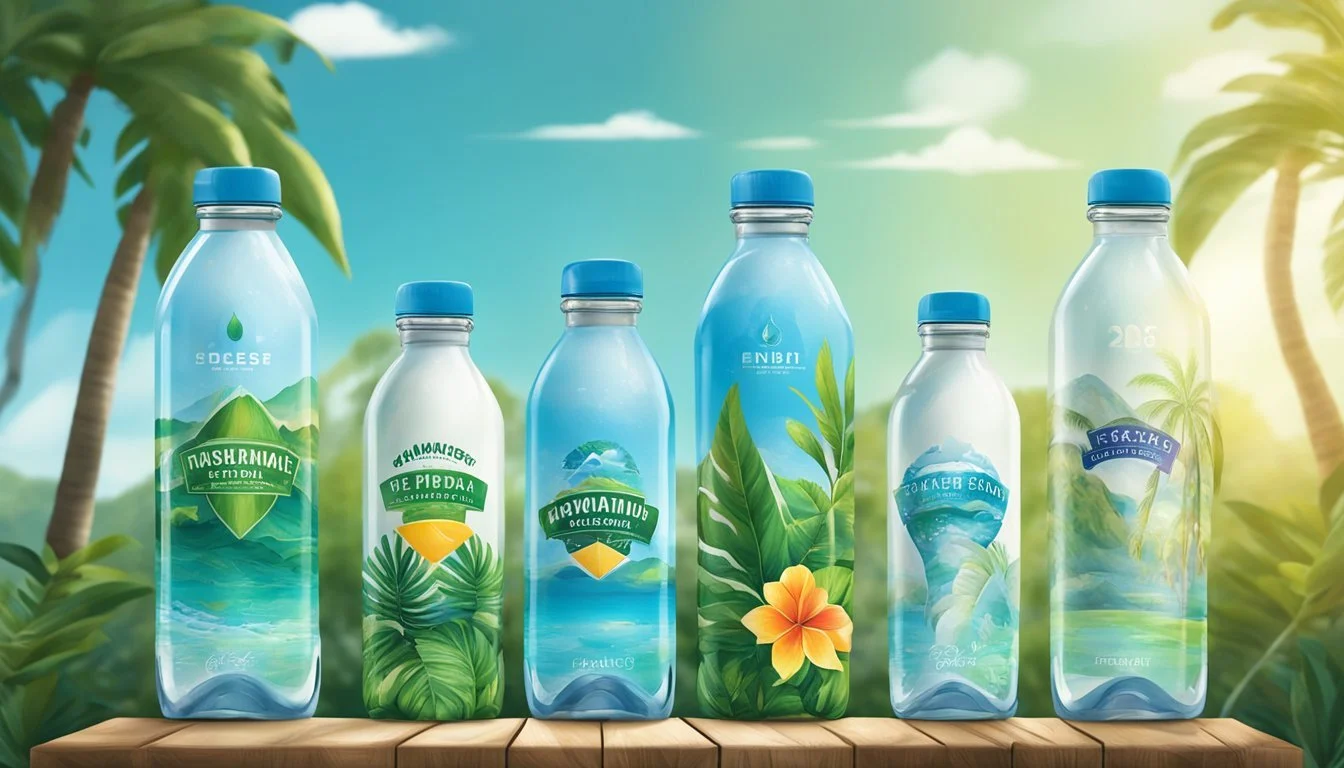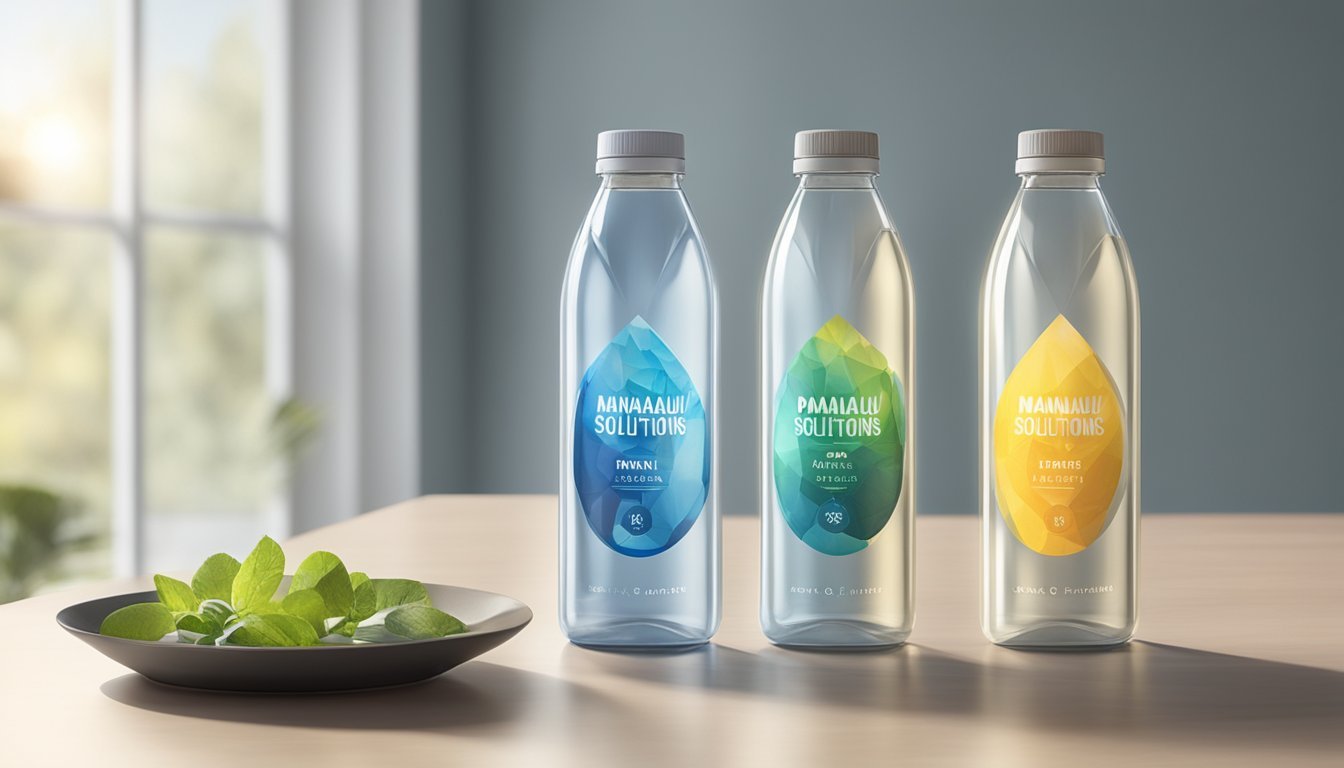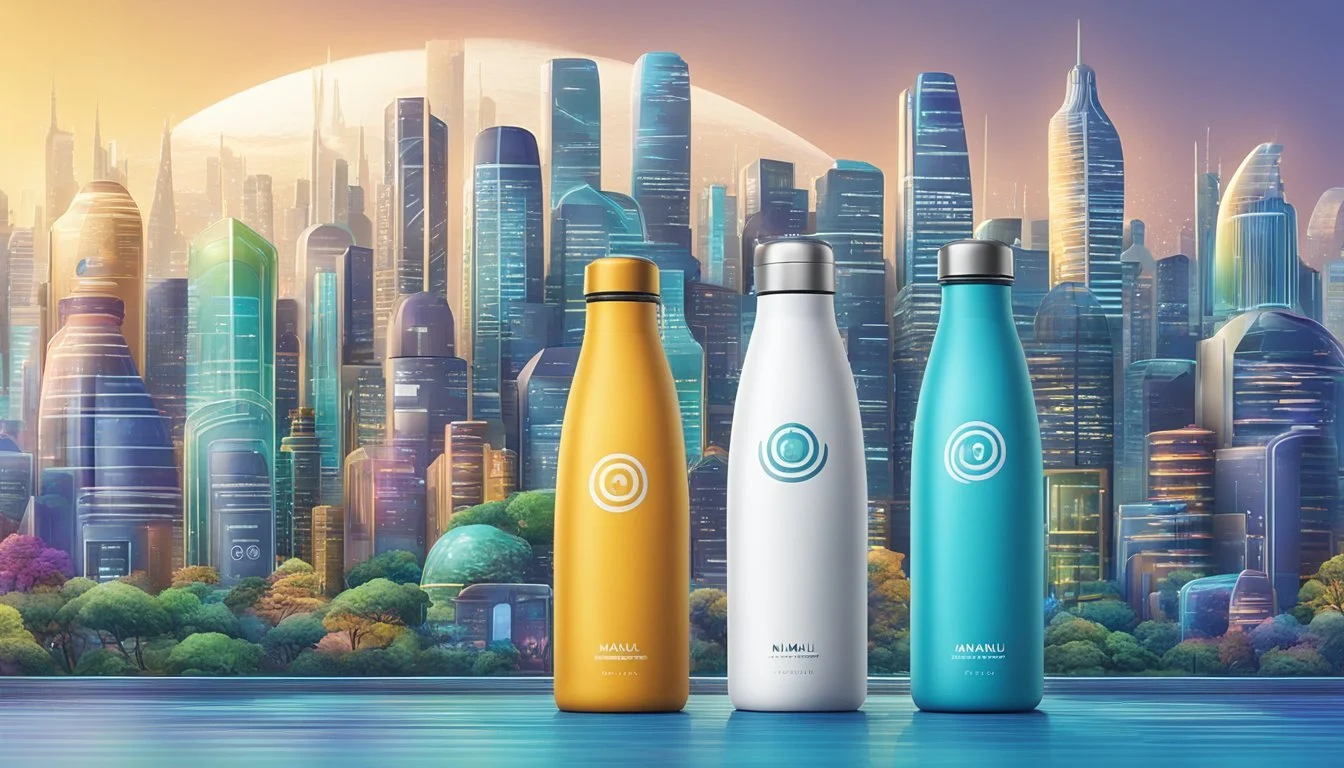Origin vs. Mananalu
Which Bottled Water is Better for You?
When comparing bottled water brands, Origin and Mananalu stand out due to their distinct approaches and commitments to sustainability. Origin focuses on providing pure, high-quality water in eco-friendly packaging, aiming to appeal to consumers looking for a reliable and environmentally conscious option. On the other hand, Mananalu, founded by Jason Momoa, emphasizes its mission to eliminate single-use plastics by offering water in 100 percent recyclable aluminum cans.
Both brands hold a strong position in the market, but their unique selling points set them apart. Origin's dedication to purity and taste makes it a favorite among traditional bottled water consumers. Meanwhile, Mananalu's innovative packaging and eco-conscious ethos resonate with those who prioritize environmental sustainability.
For those torn between the two, the decision often hinges on what they value more: superior taste and quality or a strong commitment to reducing plastic waste. By assessing these factors, consumers can make an informed choice between Origin and Mananalu.
Understanding Bottled Water
Bottled water varies in type and regulation across different regions. The environmental impact, especially considering single-use plastics, has raised significant concerns and led to a push for more sustainable packaging.
Types of Bottled Water
Bottled water comes in several varieties, each with distinct characteristics:
Purified Water: This type includes water that has undergone various filtration processes to remove impurities. It often comes from municipal sources.
Spring Water: This water originates from natural springs and is collected at the source. It retains minerals naturally found in the water.
Natural Spring Water: Similar to spring water but often marketed with a focus on its natural origins and mineral content.
Bottled Water Regulations
Regulations for bottled water ensure safety and quality.
United States: The Food and Drug Administration (FDA) sets standards for bottled water, aligning them with the Environmental Protection Agency (EPA) standards for tap water.
European Union: Bottled water must comply with stringent EU directives, differing slightly by member states.
Label Accuracy: Labels must accurately describe the water source and treatment processes used.
Environmental Impact of Bottled Water
The environmental concerns are crucial:
Plastic Waste: Single-use plastic water bottles contribute significantly to global plastic waste, with many ending up in oceans, causing pollution.
Recycled Aluminum: Mananalu and similar companies offer an alternative by using infinitely recyclable aluminum cans, reducing plastic dependency.
Sustainability: Using materials like recycled aluminum can help reduce the carbon footprint of bottled water production and minimize environmental damage.
The Brands in Focus
Origin and Mananalu represent two distinct philosophies in bottled water. Origin focuses on purity and source, while Mananalu emphasizes a strong sustainability mission led by Jason Momoa.
Origin Water: Purity and Source
Origin Water is renowned for its uncompromised purity. Sourced from pristine locations, it promises water that is free from contaminants. Purity is a key selling point, appealing to consumers who prioritize clean and natural hydration.
The water undergoes rigorous testing to ensure that it remains free from pollutants. The source, often natural springs, adds to the premium feel of the product. Each bottle reflects a commitment to quality and transparency.
Major Elements:
Source: Natural springs
Key Feature: High purity
Target Audience: Health-conscious consumers
Mananalu Water: Mission and Vision
Mananalu Water, founded by actor Jason Momoa, is not just a hydration solution but a commitment to a broader sustainability mission. The brand’s primary goal is to reduce plastic waste by offering water in 100 percent recyclable aluminum cans.
The plastic-free initiative aligns with growing environmental concerns, making Mananalu a choice for eco-conscious buyers. The Hawaiian inspiration behind the brand, coupled with Momoa's activism, adds a distinctive cultural and ethical dimension to the product.
Major Elements:
Mission: Eliminate single-use plastics
Packaging: Recyclable aluminum cans
Target Audience: Environmentally-conscious consumers
Packaging Solutions
Packaging significantly impacts both product appeal and environmental footprint. Mananalu and Origin approach this vital aspect through innovative and sustainable materials.
The Rise of Aluminum Bottles
Mananalu packages its water in aluminum bottles, a standout choice due to their infinitely recyclable nature. Aluminum can be reused without loss of quality, making it a highly sustainable option compared to single-use plastics. These bottles are also lightweight and durable, reducing transportation emissions.
Origin mirrors this by also adopting aluminum packaging, reinforcing the industry's shift from plastic. This trend supports efforts to minimize single-use plastics, which are a major environmental pollutant. Recycled corrugated boxes are often used for shipping these bottles, further reducing waste and promoting a closed-loop recycling system.
Combatting Plastic Waste with Sustainable Materials
Both companies focus on reducing plastic waste by choosing materials that are less harmful to the environment. Mananalu employs a "Drink One, Remove One" initiative, where buying a bottle results in the removal of an equivalent amount of plastic waste from oceans.
Origin also takes steps to combat plastic waste by using sustainable packaging solutions, ensuring that their products do not contribute further to pollution. These efforts highlight how packaging choices can effectively address plastic waste issues, offering consumers environmentally conscious alternatives.
These steps not only appeal to eco-friendly consumers but also set a benchmark for the bottled water industry in sustainable packaging practices.
Health and Hydration
Both Origin and Mananalu emphasize keeping you well-hydrated and offer potential health benefits. The sections below highlight the distinctions and benefits in terms of hydration and the addition of electrolytes.
Hydration Benefits of Bottled Water
Hydration is crucial for maintaining bodily functions. Bottled water offers a convenient way to ensure consistent water intake. Origin provides pure, mineral-rich water sourced from natural springs, ensuring a clean and refreshing taste. This can be appealing for a water sommelier evaluating its qualities.
Mananalu, created by Jason Momoa, focuses on reducing plastic waste by offering water in recyclable aluminum cans. This environmentally conscious choice doesn't just appeal to eco-friendly customers but also ensures hydration with its purified water. Both brands aim to deliver top-notch hydration, catering to different preferences and lifestyles.
Adding Electrolytes and Their Benefits
Electrolytes are essential for balancing fluids in the body, and some bottled water brands enhance their water with these minerals. Origin’s natural mineral water contains electrolytes like magnesium and calcium, which aid muscle function and overall health. Their presence can also slightly influence the water taste, offering a more satisfying drinking experience.
Mananalu prioritizes the environmental impact but doesn't specifically emphasize electrolyte content in their purified water. For individuals engaged in intense physical activities, water with added electrolytes can be more beneficial. Origin might be preferable for those seeking not only hydration but also a boost in necessary minerals.
Taste Profile
In comparing the taste profiles of Origin and Mananalu, it's essential to explore the nuances of their flavors and understand how the source of the water influences its taste.
Distinguishing Water Tastes
Origin and Mananalu each offer unique taste experiences. Origin, drawn from natural mountain spring water, provides a crisp and refreshing taste, often described as clean and slightly sweet.
Mananalu, on the other hand, has a distinct profile with subtle mineral undertones. The presence of flavors like lilikoi passion and Tahitian lime gives it a refreshing twist. Consumers often appreciate the smooth and slightly alkaline finish, which sets it apart from other bottled waters.
Understanding these differences is crucial for those who prefer a specific flavor profile in their hydration choice.
The Role of Source in Taste
The source of the water plays a significant role in its taste. Origin sources its water from pristine mountain springs, which are naturally filtered through rock and soil, contributing to its pure and fresh taste.
Mananalu uses purified water that may include additional electrolytes, enhancing its taste and making it a popular choice for those seeking both flavor and hydration. The use of 100 percent recyclable aluminum cans can also impact the perceived taste, offering a slight metallic hint compared to traditional plastic bottles.
By choosing Mananalu, consumers support a mission-driven brand while enjoying its unique and sustainable approach to bottled water.
Economic and Social Impact
This section will compare the community partnerships, projects, and impact on local economies of Origin and Mananalu bottled water brands.
Community Partnerships and Projects
Mananalu focuses on meaningful community engagement through initiatives like "Drink One, Remove One." This program removes the equivalent of one plastic bottle from the environment for every bottle sold, highlighting Mananalu's commitment to reducing ocean plastic.
They partner with rePurpose Global, amplifying their environmental impact.
Origin, in contrast, builds partnerships with local conservation groups and runs educational programs aimed at water sustainability. These partnerships help support biodiversity projects, making Origin's community involvement more conservation-oriented. Origin's approach reflects a broader spectrum in environmental education and preservation within communities.
Impact on Local Economies
Mananalu's focus on aluminum bottles has spurred growth in the local recycling sector. Jobs are created in the collection, sorting, and processing stages of the aluminum supply chain. Additionally, their partnerships with local businesses ensure that economic benefits are distributed within the community.
In comparison, Origin's initiatives often emphasize sourcing water sustainably and investing in local infrastructure. This creates jobs in both the water supply chain and community-based projects. Their investments also lead to improvements in local water quality and availability, directly benefiting residents.
Each brand's unique approach has significant, tangible impacts on local economies, enhancing not only environmental sustainability but also economic resilience.
Environmental Practices of Water Brands
Both Origin and Mananalu claim strong commitments to environmental consciousness, focusing on sustainable sourcing and comprehensive waste management strategies.
Sustainable Sourcing
Mananalu utilizes 100 percent recyclable aluminum cans for its water, aimed at reducing single-use plastic waste. The choice of aluminum over plastic is significant due to aluminum's higher recyclability rate. Aluminum cans can be recycled over and over without degrading in quality, making them a more sustainable choice compared to plastic bottles.
Origin, on the other hand, emphasizes locally sourced water from sustainable springs. This reduces the carbon footprint associated with transportation. They also invest in renewable energy sources for their bottling plants, further minimizing their environmental impact.
Waste Management and Recycling Programs
Mananalu has partnered with rePurpose Global to combat plastic pollution. For every bottle sold, the company removes a bottle's worth of plastic from ocean-bound waste. This initiative has led to the removal of the equivalent of 15 million plastic bottles from the environment, significantly contributing to waste reduction.
Origin focuses on a closed-loop recycling system, ensuring that their bottles are not just recyclable but often reused. They encourage customers to return used bottles for rebates, promoting a circular economy. Their facilities also utilize advanced water-filtration technologies to minimize wastewater.
These initiatives by both brands highlight their dedication to reducing their environmental footprint, making a conscious effort to promote sustainability and contribute to a healthier planet.
Consumer Choices and Impact
Choosing between Origin and Mananalu bottled water involves considering factors such as environmental impact and personal sustainability goals. Both brands aim to provide high-quality water, but their approaches to packaging and environmental responsibility differ significantly.
Making Informed Decisions as a Consumer
When selecting bottled water, consumers must weigh the environmental implications of their choices. Origin uses traditional plastic bottles, often contributing to the single-use plastic waste problem. Mananalu, on the other hand, packages its water in aluminum bottles, which are infinitely recyclable.
Consumers should also consider the ease of recycling. Plastic bottles may end up in landfills or oceans, but aluminum bottles are more frequently recycled. Additionally, Mananalu’s “Drink One, Remove One” initiative further encourages environmental responsibility by removing the equivalent of a plastic bottle from the environment for each bottle sold.
Promoting a Culture of Sustainability
Consumers also influence broader sustainability practices by supporting brands that prioritize eco-friendly packaging. Mananalu’s use of recycled aluminum highlights the potential to reduce reliance on single-use plastics, fostering a culture of sustainability.
By choosing products like Mananalu, individuals support companies actively working to reduce plastic waste. This includes not only avoiding plastic bottles but also discouraging the use of other single-use plastic items, such as plastic bags. Responsible consumer behavior drives demand for sustainable alternatives, which can lead to more widespread industry changes.
Supporting sustainability-focused companies can have a significant cumulative impact, encouraging more businesses to adopt environmentally friendly practices.
Future Trends in Bottled Water
As the bottled water industry evolves, innovations are driving sustainability while consumer preferences are shifting towards environmentally friendly solutions. This section explores key developments shaping the future of bottled water.
Innovations in the Water Industry
Innovations in bottled water are increasingly focused on sustainability. Brands are adopting infinitely recyclable aluminum for packaging, reducing plastic waste. For instance, Mananalu offers resealable aluminum bottles, emphasizing recycling.
Technological advancements, such as improved purification processes, are also playing a significant role. These innovations ensure higher water quality standards. Companies like Mananalu are partnering with organizations like rePurpose Global to address plastic pollution, integrating impactful initiatives like "Drink One, Remove One."
Smart packaging is another rising trend. Bottles equipped with QR codes provide consumers with information about the water's source, purity, and the brand's sustainability practices, fostering transparency and informed purchasing decisions.
Shifting Consumer Preferences Towards Eco-Friendly Solutions
Consumers are increasingly prioritizing eco-friendliness in their purchasing decisions. There is a growing preference for bottled water brands that emphasize sustainability and climate change mitigation.
This shift is driving demand for products packaged in environmentally friendly materials such as aluminum. Brands like Mananalu, which use infinitely recyclable aluminum bottles, are gaining popularity.
Additionally, consumers are attracted to initiatives that directly contribute to environmental conservation. Mananalu’s "Drink One, Remove One" campaign, which removes ocean-bound plastic for each bottle sold, resonates with environmentally conscious buyers.
The emphasis is also on transparency. Consumers expect brands to provide clear information about their sustainability efforts, leading companies to highlight their environmental impact and social responsibility prominently.
More About Origin
Mountain Valley Spring Water vs Origin: Which Bottled Water is Better?
Origin vs Kirkland Signature: Which Bottled Water is Better?
Origin vs Richard's Rainwater: Which Bottled Water is Better?
Origin vs Whole Foods Italian Still Mineral water: Which Bottled Water is Better?
More About Mananalu
Hawaiian Springs vs Mananalu: Which Bottled Water is Better?
Icelandic Glacial vs Mananalu: Which Bottled Water is Better?
Mananalu vs Cascade Mountain: Which Bottled Water is Better?
Mananalu vs Kirkland Signature: Which Bottled Water is Better?
Mananalu vs Richard's Rainwater: Which Bottled Water is Better?
Mananalu vs Talking Rain AQA: Which Bottled Water is Better?
Mananalu vs Whole Foods Italian Still Mineral water: Which Bottled Water is Better?
Mountain Valley Spring Water vs Mananalu: Which Bottled Water is Better?
Nestle Pure Life vs Mananalu: Which Bottled Water is Better?






